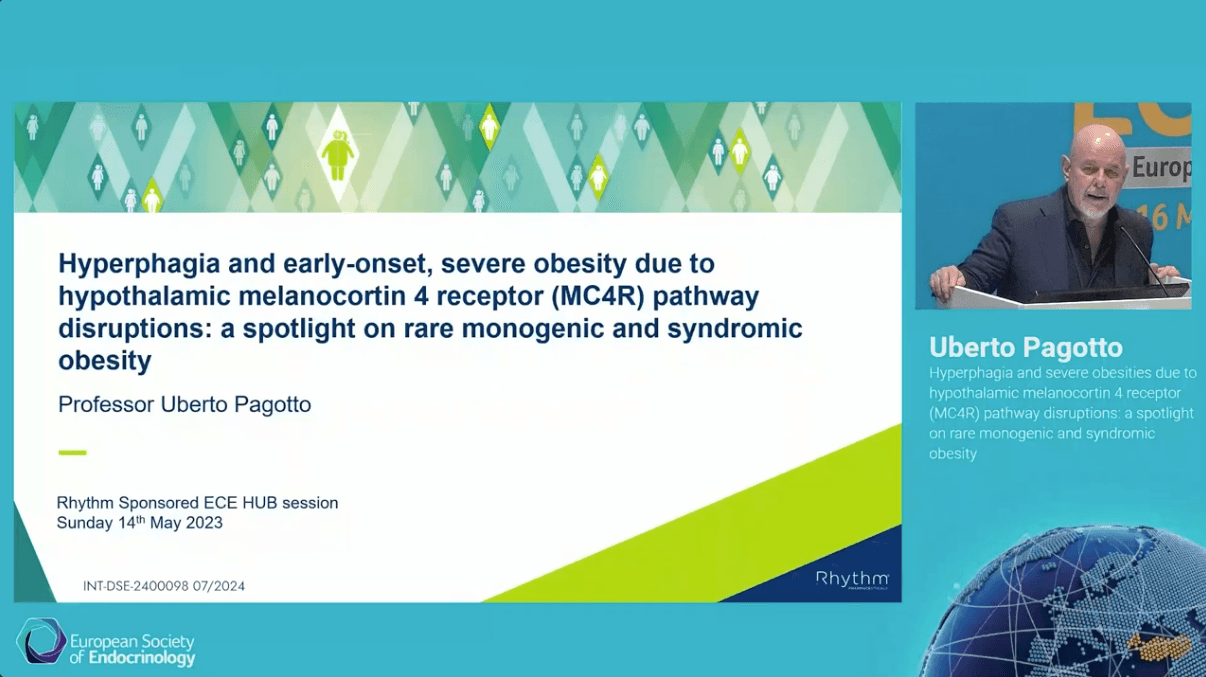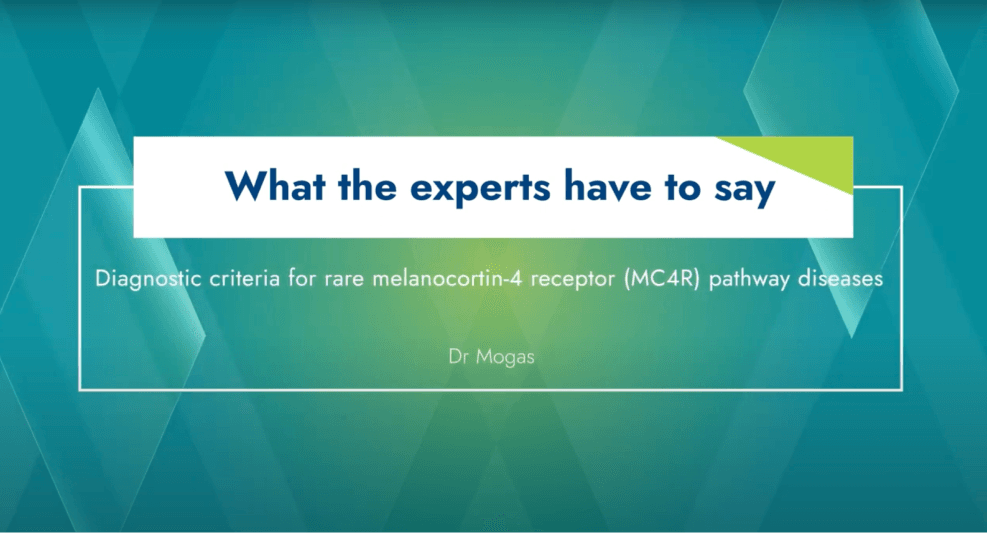Welcome to Path4HCPs
Science-based information about the melanocortin-4 receptor pathway
Welcome to path4HCPs
Here you can learn more about rare melanocortin-4 receptor (MC4R) pathway diseases, their diagnosis and management.
These variants can impair signalling in the pathway that controls hunger and can be a root cause of increased appetite and body weight.1
To accurately diagnose and care for those possibly living with a rare MC4R pathway disease, it is crucial to undertake a detailed observation of the patient and gain confirmation of any underlying genetic cause.
A proper understanding of a root cause of the disease allows for appropriate management and care of patients.1
Here you can find information about rare MC4R pathway diseases.
Identification and diagnosis

Hyperphagia and early-onset obesity are a Growing Concern
Hyperphagia and early-onset obesity are distressing features of rare MC4R pathway diseases, significantly impacting patients and their families. Learn how to identify the clinical features of rare MC4R pathway diseases and help affected children access appropriate care.
01
— 03
Got a specific question?
If you can't find what you're looking for, or want to discuss a topic in more detail, reach out to our team.
Hyperphagia and early-onset obesity are cardinal symptoms of rare MC4R pathway diseases
Hyperphagia (pathological, insatiable hunger) is characterised by an overwhelming, heightened, and relentless hunger, a longer time to reach satiety, a shorter duration of satiety, and, potentially, extreme food-seeking behaviours such as waking up at night to find food. Hyperphagia leads to excess energy intake, which contributes to obesity.2,3
Early-onset obesity (presence of obesity before age 5, and BMI ≥95th percentile for age and sex) results from factors that disrupt the balance of energy intake (food consumption) and energy expenditure (metabolic rate, thermogenesis, and physical activity). While many environmental factors can influence this balance, our genes also significantly define our body weight. Research has shown that some naturally arising genetic variants are associated with obesity.1,3,4
Learn more about the cardinal symptoms of rare MC4R pathway diseases
Dr Ashley Shoemaker, Vanderbilt University Medical Center and Dr Ilene Fennoy, New York-Presbyterian Hospital/Columbia University Medical Center explain more about the clinical presentation of the cardinal symptoms of rare MC4R pathway diseases, hyperphagia and early-onset obesity. They discuss key signs, symptoms and cues to look for during a consultation.
Do you want to hear from other experts like Dr Shoemaker and Dr Ilene? Click below to access more expert interviews:
Providing the latest research and information
Visit the content hub to access a variety of educational materials, including presentations from international experts, infographics and downloadable handouts.

How to identify genetic causes of obesity and related syndromes. Understanding the role of the MC4R pathway in monogenic obesity and Bardet-Biedl syndrome
Prof. Philip Beales
Prof Sadaf Farooqi
Angela Scudder
Video

Hyperphagia and severe obesities due to hypothalamic melanocortin-4 receptor (MC4R) pathway disruptions: a spotlight on rare monogenic and syndromic obesity
Prof. Uberto Pagotto
Video
Watch the latest interviews with experts
Hear from leading experts in their fields as they share their knowledge and experience in caring for patients with rare MC4R pathway diseases.

Proactive, personalised obesity management
Prof. Luca Busetto
Video

Dr Mogas discusses the clinical criteria used when suspecting rare MC4R pathway diseases in this 'What the experts have to say' video series
Dr Eduard Mogas
Video

Genetic testing in melanocortin-4 receptor pathway diseases
Prof Carel Le Roux
Video
Join our community of healthcare professionals
- Get the latest news
- Access materials within the Content Hub
- Hear about upcoming events
- Receive recommended content based on your interests
References:
- 1. Yazdi F, et al, PeerJ, 2015;3:e856.
- 2. Heymsfield SB, et al. Obesity (Silver Spring). 2014;22:S1‒S17.
- 3. Hampl SE, et al. Pediatrics. 2023;151:e2022060640.
- 4. Fonseca ACP, et al. J Diabetes Complications. 2017;31:1549–1561.
- 5. Haqq AM, et al. Lancet Diabetes Endocrinol. 2022;10(12):859–868.